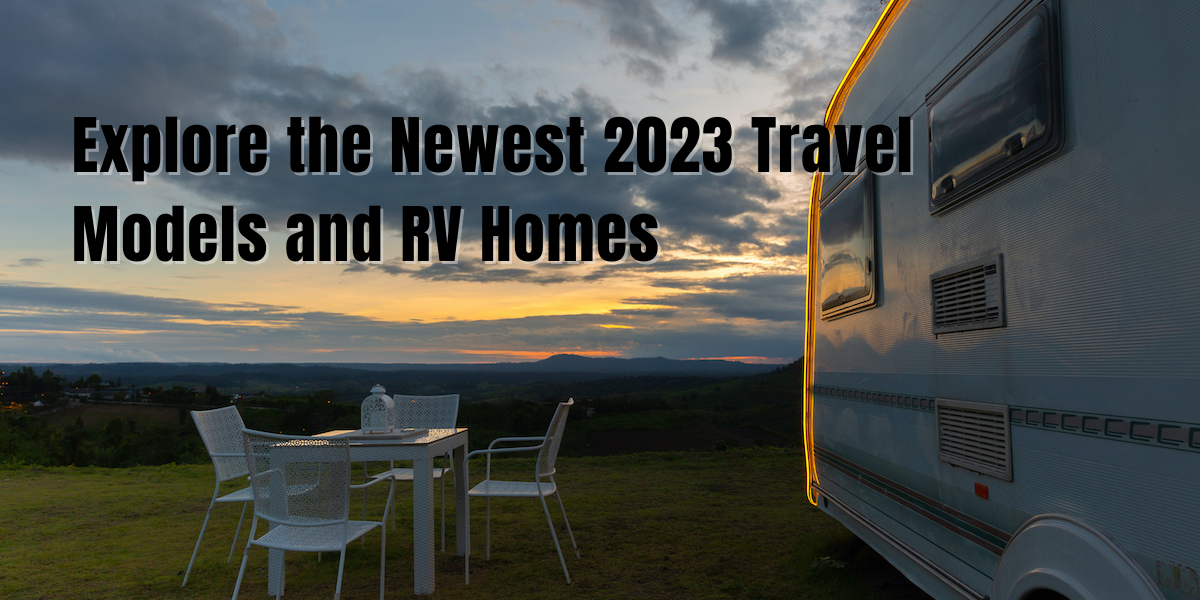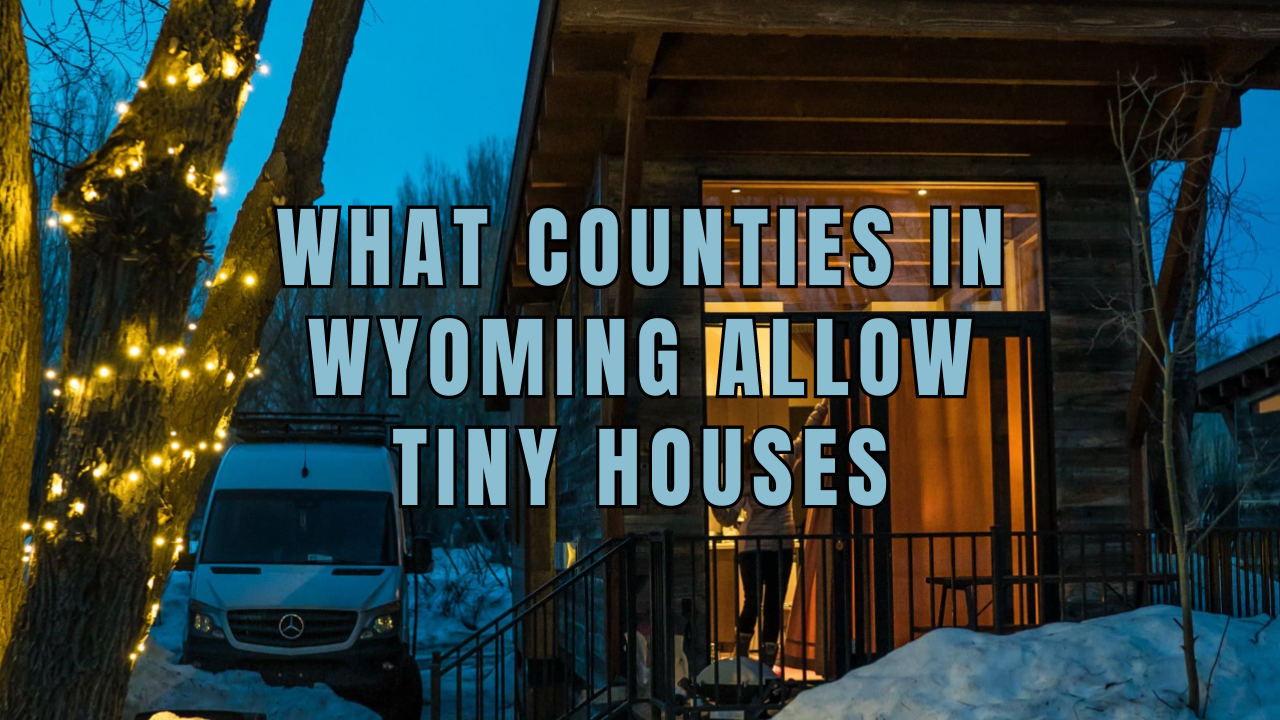RV homes are recreational vehicles that are designed to provide living accommodations for travelers. They come in different types, sizes, and features, depending on the needs and preferences of the owners.
Finding out more about each type of RV makes it simpler to choose one that best suits your travel requirements, whether it be a truck camper, Popup Camper, Fifth Wheel, etc.
Therefore, having a motorhome is your best option if you want to travel the world while living on the road or if you want to take the comforts of home with you while on vacation so that you won’t have to worry about paying for hotel rooms.
What Is an RV Home?
It is a car or trailer with living quarters intended for lodging. Some examples are motorhomes, campervans, coaches, and caravans. It may be pulled behind another vehicle or propelled by its engine, and it must have living space intended to be used as accommodations to qualify as a recreational vehicle.
Which Are the Classes and Best Models of Recreational Vehicles?
Motorhomes or Luxury Motor Coach
Class A
They are the biggest drivable RVs and are generally regarded as opulent and comfortable. The construction of their big bus frames on truck chassis allows RV manufacturers to build heavier and larger RVs.
They have two different motors available. Generally speaking, the smaller, lighter vehicles have a gas motor, while the larger, heavier variants have a diesel engine. Depending on the motor, the majority of these vehicles include features like enhanced carpeting and furnishings, home appliances, and lots of underbody storage.
A standard Class A motorhome has one bedroom and fold-down beds; it can sleep 2–8 people. Further, they are capable of hauling up to 5,000 lbs. They cost between $200,000 and $1.5 million, with a few exceptions.
Some of the best options are; Thor A.C.E. 29G, American Coach American Eagle 45K, Fleetwood Bounder 35K, and Tiffin 40IH Phaeton.
Pros:
- Residential conveniences
- Include a large living space indoors
- The camping site setup is simple
- There is a ton of storage.
Cons:
- Must leave their cars in large parking lots
- Poor fuel efficiency
- Some RV owners might require a second tow vehicle
- Challenging to drive.
Class B
The smallest RVs available are Class B motorhomes, which have gained popularity because of the van life movement. These vehicles, usually called campervans, are available with either gas or diesel engines.
Although large enough to include adaptable living and sleeping quarters, tiny kitchens, and occasionally even toilets and showers, they are still maneuverable enough to fit in ordinary parking places.
Compared to Class A motorhomes, Class B RVs are also more affordable, starting at roughly $80,000 and going up to $175,000.
The best options include; Thor Sanctuary 19PT, and Thor Sequence 20A-P.
Pros:
- Simple to drive
- Fills a typical parking spot
- Friendly to tiny campgrounds and national parks
- Fantastic for boondocking.
Cons:
- Limited amount of storage
- The mode of transportation is the main RV
- Tiny freshwater, greywater, and blackwater tanks
- Flexible living and sleeping quarters.
Class C
The most commonly hired class of recreational vehicle is Class C. The living area is around the cab of the vehicle, which is constructed on a van chassis. These Classes are flexible and easy to use.
The gas-powered engines can handle a big load while still operating efficiently on uphill and hilly terrain.
The majority of Class C recreational vehicles include a sleeping space, a toilet with a bath, an eating area, and a convertible dinette. The iconic cab-over bed is typically used as a second sleeping area, while some individuals utilize it as additional storage. Depending on the model and size, it may accommodate 4–8 people.
These Classes may appear modest from the outside, but when placed at the campsite, they expand into cozy living areas. Generally, they cost $50,000 or less and may cost up to $115,000 for more expensive variants.
Some of the best options are; Thor Sequence 20A-P, and Thor Magnitude SV34.
Pros:
- It is simple to park and drive
- Flexible sleeping and living quarters
- Residential conveniences.
Cons:
- Some RV owners might desire a second tow vehicle
- Holding tanks of average size
- Poor fuel efficiency
- Many owners will need to store their RVs somewhere.
Truck Campers
Due to their weight, truck campers almost invariably need a one-ton or a simultaneous (dual rear-wheel) vehicle. They stand in the sleeping area of a pickup truck. Hard sidewalls, a bed, a kitchen, and a bathroom or wet bath are common features of truck campers.
While bulkier truck campers are at an adequate height for people to stand, lighter truck campers may feature a little pop-up roof. Slide-outs make some of the most opulent truck campers feel a little bit larger inside.
They may cost as little as $8,000 or as much as $15,000, which is the greatest option for beginners.
Among the best options are included: AT Overland Aterra XL, and Four Wheel Campers Hawk.
Pros:
- It is simple to park and drive
- Capable of traveling off-road
- A garage full of storage
- Friendly to boats and toys.
Cons:
- Good payload and gross weight ratings are required for trucks
- Top-heavy
- Tiny inside
- Limited amount of storage.
Travel Trailer
Due to their adaptability and wide range of lengths and weights, they are one of the most common RVs on the market.
Their hard-sided often include a kitchen, independent living and sleeping rooms, a bedroom, a bathroom, and a folding dinette or living area that serves as an additional sleeping area. A travel trailer may extend up to 40 feet in height and often measure 20 to 30 feet long.
The best choice include; Wildwood Grand Lodge Destination and Airstream Flying Cloud.
Pros:
- Large selection to choose from
- Easily Affordable
- Additional storage is provided by the tow truck
- Play at the park.
Cons:
- Lower ability to support the weight
- The capacity of the towing vehicle
- Limited amount of storage
- Too big to fit in a house garage.
Popup Camper
These kinds of campers look and operate like RV tents. The kitchen, dinette, storage spaces, toilet, or shower are usually housed in the hard-sided bottom part of the trailer frame, which varies depending on the type.
The tent portion of the trailer falls into the hard-sided floor while the camper is in drive mode. The tent portion of the trailer extends while the pop-up camper is in camp mode to offer extra headroom, a bedroom area, and zippable panels and windows.
Pop-up campers are popular due to their lightweight, easy-to-tow profile, and lower price than other travel vehicles.
Some of the best choices are; Turtleback Getaway and Sylvansport Go.
Pros:
- Easily Affordable
- Lightweight and low profile
- A garage full of storage
- Ideal for tent campers who aspire to switch to RVs but are not quite ready.
Cons:
- Similar to a tent, it is susceptible to noise and high temperatures
- Pop-up campers are forbidden in several RV parks
- Limited amount of storage
- Low value upon resale.
Fifth Wheel
Fifth wheels are one of the most well-liked models of full-time RVs. Because it hitch links a pin-box from the outside of the trailer to a U-shaped connection located in a vehicle bed, it differs from a bumper-pull hitch.
Even though fifth wheels are often larger and heavier than travel trailers, their connection to the truck bed makes them ride more smoothly and steadily than a travel trailer.
They usually have two floors, with the upstairs floor housing between the master bed or a multi-purpose bunkhouse. Fifth Wheels are among the most comfortable and opulent trailers on the road because of features like several slide-outs, a barbecue area, an extensible patio, comfortable chairs, a workspace, and a kitchen island.
They are often affordable, with smaller models costing $40,000 and bigger ones $125,000.
Among the best options are included: Brinkley RV Model Z 3100 and Coachmen Chaparral.
Pros:
- Large amounts of storage
- Living and sleeping areas apart
- Special features like sleeping nooks and bunk homes
- Lasting and permanent friendliness.
Cons:
- Parking is challenging
- Several owners will need to store their RVs somewhere
- A heavy-duty or competent pickup vehicle is required for towing
- Some national park campsites are too huge for them.
Tiny travel trailers
Tiny travel trailers, also known as micro trailers, are comparable to standard travel trailers in terms of amenities. Still, they merit their category because of their compact and adaptable living quarters.
Tiny travel trailers include Teardrop, fiberglass, clamshell, and several smaller pop-up trailers. While some small travel trailers have inside kitchens and wet bathrooms, others offer flexible living and sleeping areas and outside kitchens.
Due to their minimal weight and compatibility with smaller SUVs and vehicles, little travel trailers are widely used.
Some of the best options are; Polydrops P19 Shorty and Colorado Campworks NS-1.
Pros:
- Lightweight
- It is simple to park and drive
- Favorable to national parks
- Fits in a garage that is big enough for a home.
Cons:
- Tiny inside
- A garage full of storage
- Gray, black, and small freshwater tanks
- Not always autonomous
What Are Their Benefits?
The following are some advantages of RV homes:
- They provide you the freedom and flexibility to visit various locations
- They may spend less on things like housing, food, and transportation
- With facilities like kitchen, bathroom, bedroom, and entertainment systems, they may offer comfort and convenience.
- Together with other RV lovers, they may promote a sense of camaraderie and adventure.
FAQs
For What Does RV Stand?
RV is an abbreviation for Recreational Vehicle, which can be either a motorhome or a caravan. A motorhome RV is an integrated self-motorized vehicle, as opposed to a trailer RV, which another vehicle pulls.
Between an RV and a Trailer, What’s the Difference?
The most obvious distinction between both of them is that a travel trailer needs to be pulled whereas an RV, referred to as a motorhome, may be driven independently. Both are now quite well-liked among tourists and campers. The adaptability of both kinds is one of their most appealing qualities.
Is a Specific License Required to Operate an RV?
Anyone with a conventional driver’s license may operate the vast majority of RVs. The state you reside in is the key determining factor because some demand a special license for huge RVs. A commercial driver’s license is occasionally necessary. However, this is exceedingly uncommon. Make careful to verify the laws in your state because they vary by state.
Is a Separate Insurance Necessary?
Yes, because auto insurance is not the same as other types of insurance. Some auto insurance providers could provide coverage for your RV, but there may be significant coverage gaps as a result.
There are specialty insurance plans designed just for RVs that might cover things like full-time responsibility, emergencies, a limited guarantee on replacement in the event of a total loss, campground liability, greater liability limits, etc.
It is important to remember that various companies may offer different coverages and frame things differently.
What Additional Expenses Should I Consider While Shopping for an RV?
Insurance; the costs vary depending on the supplier. Depending on the store you are buying from, there may be sales tax, shipping, etc. The parts and accessories include special packaging, break systems, waste disposal components, sanitation chemicals, etc. Maintenance; might involve both regular upkeep and urgent repairs.
Wrap-Up
For those who enjoy traveling and discovering new locations. RV homes are an excellent choice. They provide several benefits, including community, comfort, affordability, and flexibility. They also do have certain disadvantages, though, such as maintenance, legal concerns, and space.
Research and planning should be done before purchasing or renting one to find the ideal fit for your lifestyle and financial situation. You are ready for the opportunities and problems that come with it. They can be a wonderful way to enjoy life on the road.





